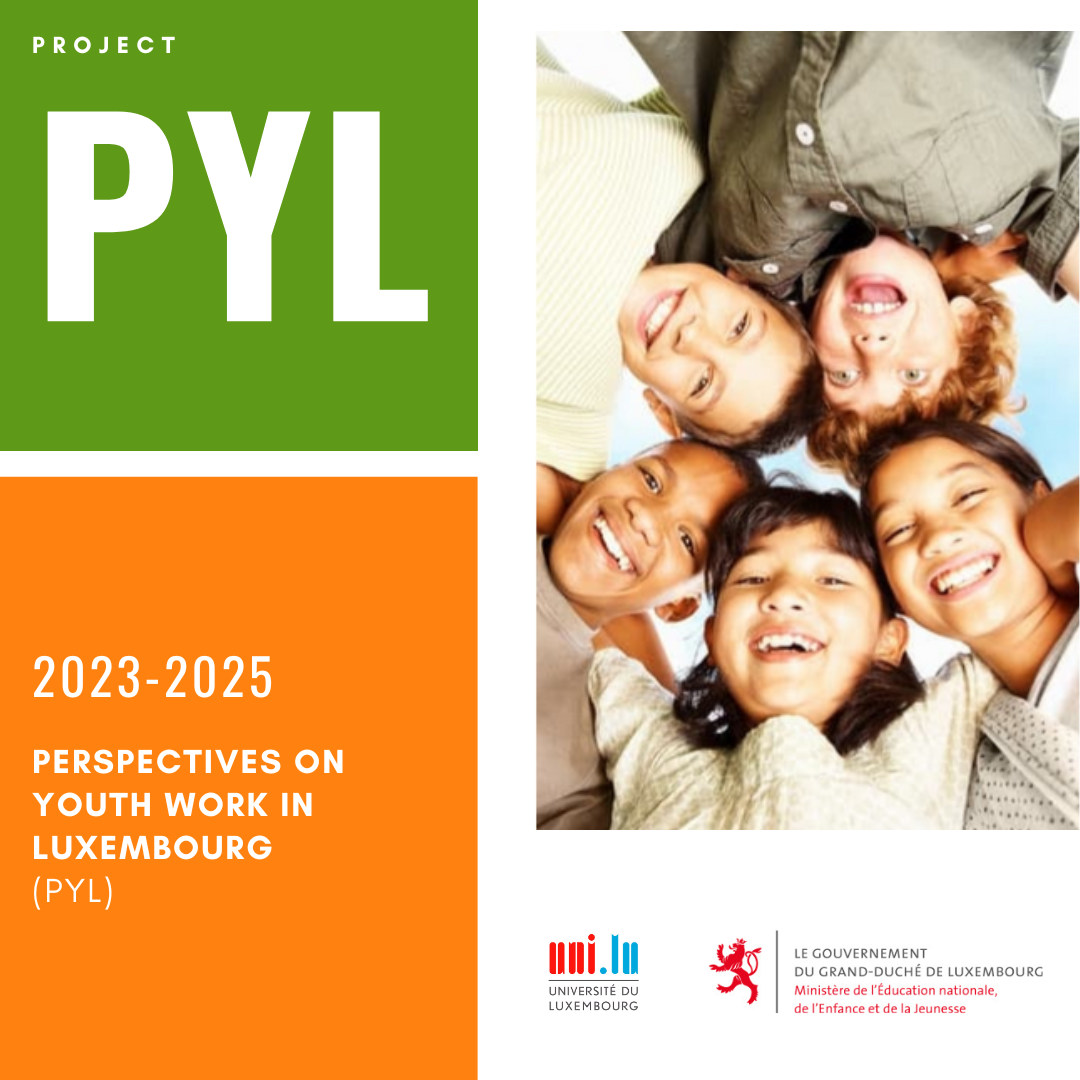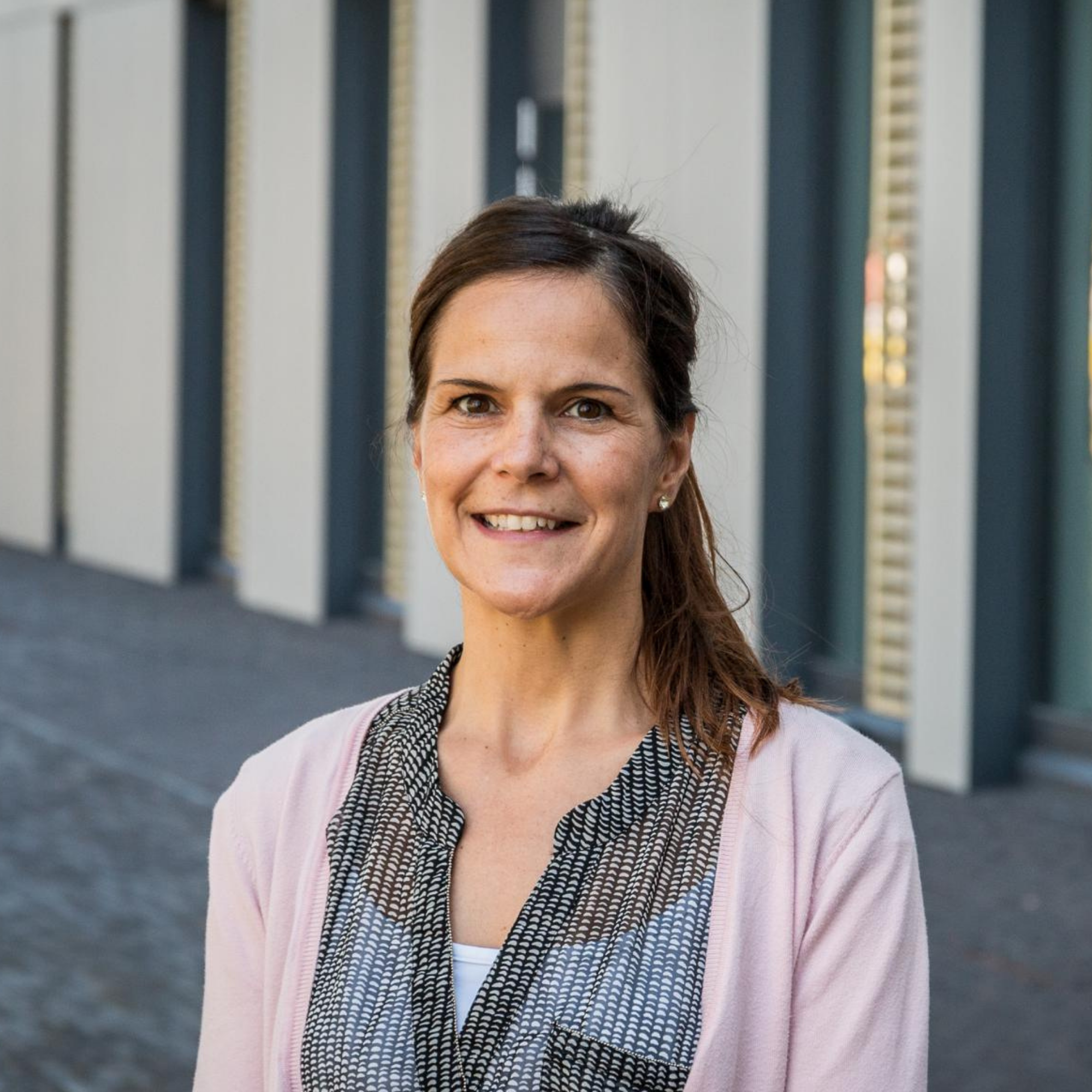Dr Sandra Biewers Grimm is a pedagogue with a Master’s degree in Social Management and a Postdoctoral Researcher at the Centre for Childhood and Youth Research (CCY) at the University of Luxembourg.
Perspectives on Youth Work in Luxembourg (PYL)
An empirical study on the interpretative framing of youth work from the perspective of practitioners
The study “Perspectives on Youth Work in Luxembourg (PYL)”, commissioned by MENJE and carried out at the Centre for Childhood and Youth Research (CCY) at the University of Luxembourg in the period 2023 – 2025, aims to analyse the interpretations and understandings of youth work from the perspective of its practitioners in order to gain more empirical knowledge about its conceptualisations and definitions. Learn more about the study right here!

Jump to content
In science and politics, it is assumed today that a holistic form of education is needed to adequately prepare young people for current and future social challenges (Sonneveld, et. al., 2021; Larson, 2019). As the Luxembourg Youth Report shows, the demands of the complex, digitalised world, global crises, dealing with pressure to perform and mental problems are just some of the topics relevant to young people that must be addressed, especially in educational institutions (Schumacher et al., 2021).
Youth work as a place of non-formal education enables young people to have “different” educational experiences (Biewers, Latz & Weis, 2022): In addition to imparting “life skills” and knowledge, the focus here is on experiences of autonomy, inner orientation and self-efficacy, and thus important resources for the transition to an independent adult life (Nida-Rümelin & Zierer, 2023; OECD, 2020; Scherr, 2021).
However, because youth work operates close to the lives of young people and is constantly evolving with the fast-paced changes in society and youth issues, it is a complex field of action. This diversity of possible topics and starting points for professional action has an impact on public perception and, above all, on the way youth workers organise their educational practice.
There is no generally valid definition of youth work
A new study at the Centre for Childhood and Youth Research (CCY) addresses this problem and empirically investigates the questions: What is youth work from the perspective of those who implement it? What should and can it achieve from their perspective? What are its tasks and what are they not?
One thing is clear: youth work focuses on young people’s individual issues, takes place in different contexts and structures in which a variety of activities and programmes are carried out, and leads to subjective and therefore only partially measurable results (Corney, Marion, Baird, Welsh, & Gorman, 2023; Biewers, Latz & Weis, 2022). However, there is no single definition of youth work.
The research concept of the study
The study “Perspectives on Youth Work in Luxembourg (PYL)”, commissioned by MENJE and carried out at the Centre for Childhood and Youth Research (CCY) at the University of Luxembourg in the period 2023 – 2025, is to analyze and characterize youth work in Luxembourg from the perspective of those involved in practice. The interest lies in a better empirical understanding of the interpretations and perceptions of youth work that exist in practice. To this regard, a broad-based online survey and subsequent group discussions will be conducted with professionals working in the various youth work structures in Luxembourg.
The aim of the study is to systematise the knowledge gained in order to identify differences between the concepts and to empirically describe the diversity of youth work close to its practical reality. The knowledge gained in this way can contribute to a better understanding of the field of work and to quality assurance and the further development of educational practice.
Scientific literature
Biewers, S.; Latz, A. & Weis, D. (2022): Bildungserfahrungen in non-formalen Settings. Eine Jugendstudie über das Potenzial und den Wert bildungsorientierter Jugendarbeit. Esch/Belval.
Cooper, T. (2018). Defining youth work: exploring the boundaries, continuity and diversity of youth work practice. In P. Alldred, F. Cullen, K. Edwards, & D. Fusco. The SAGE Handbook of Youth Work Practice. Publications Ltd, (S. 3-17) SAGE
Corney, T., Marion, J., Baird, R., Welsh, S., & Gorman, J. (2023). Youth Work as Social Pedagogy: Toward an Understanding of Non-Formal and Informal Education and Learning in Youth Work. Child & Youth Services. https://doi.org/10.1080/0145935X.2023.2218081
Larson, R. W., McGovern, G., & Orson, C. (2019). How adolescents develop self-motivation in complex learning environments: Processes and practices in afterschool programs. In A. Renninger & S. Hidi (Eds.), Cambridge handbook of motivation and learning. (pp. 111–138). NYC: Cambridge Press.
Nida-Rümelin, J. & Zierer, W. (2023). Demokratie in die Köpfe – Warum sich unsere Zukunft in den Schulen entscheidet. Hirzel.
OECD. (2020). Lernkompas 2030. OECD-Projekt Future of Education and Skills 2030: Rahmenkonzept des Lernens. Bertelsmann Stiftung, Deutsche Telekom Stiftung, Education Y e.V., Global Goals Curriculum e.V., Siemens Stiftung.
Schumacher, A., Heinen, A., Schembri, E., Willems, H.E., & Samuel, R. (2021). Synopse der zentralen Ergebnisse. In Ministère de l‘Éducation nationale, de l‘Enfance et de la Jeunesse & Université du Luxembourg (Eds.): Rapport national sur la situation de la jeunesse au Luxembourg 2020. Luxembourg, 2021.
Scherr, A. (2021). Subjektorientierte Offene Kinder- und Jugendarbeit. In U. Deinet, B. Sturzenhecker, L. von Schwanenflügel & M. Schwerthelm (Hrsg.), Handbuch Offene Kinder- und Jugendarbeit (S. 639-652). Springer VS.
Sonneveld, J., Rijnders, J., Metz, J., Van Regenmortel, T. & Schalk, R., (2021). The contribution of professional youth work to the development of socially vulnerable youngsters: A Dutch Longitudinal Cohort Study. In Child and Adolescent Social Work Journal, 39, 361-373.






